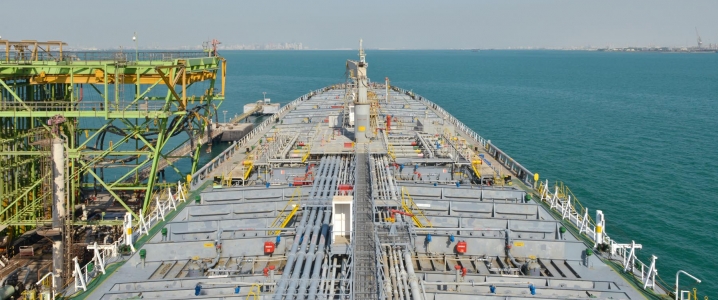Geopolitical factors once again trumped fundamentals with the growing concern over new U.S. sanctions on Iran, keeping WTI and Brent crude prices high despite a build in crude oil inventories reported yesterday by the Energy Information Administration.
The EIA yesterday reported that U.S. drillers had produced an average 10.586 million barrels daily in the week to April 20, a record-breaking production rate. The authority added that in the same week crude oil inventories had increased by 2.2 million barrels, which went counter to analyst expectations of a draw or a much smaller build.
Such figures would usually weigh on prices, but the market appears to be much more focused on the possibility of new sanctions against Iran. A slight suggestion that President Trump might accept a revised deal between the six Western powers who signed the original nuclear deal with Iran on Tuesday did halt the price rise, but it was temporary.
Now, French President Emmanuel Macron has proposed a new deal to offer Trump, but if the U.S. president shuns it, it will be time of more tension and uncertainly, Macron said, as quoted by Bloomberg. Trump is due to announce his decision on whether he will extend the sanction waivers for Iran on May 12.
Some analysts, meanwhile, believe that the market is underestimating the effect of new sanctions on oil prices. MUFG’s head of research, Ehsan Khoman today told CNBC that “We think at least 250,000 to 350,000 barrels of Iranian crude (a day) could be at risk of disruption if sanctions are brought back into place. In terms of the upside risk to oil prices, we think that anything north of $80 for Brent crude and WTI above $75 could firmly take place. We think markets have not fully priced-in the size and magnitude of Iranian sanctions."
By Irina Slav for Oilprice.com
More Top Reads From Oilprice.com:
- A Geopolitical Red Herring For Oil Markets
- World Bank: Oil Prices To Average $65 This Year
- Expect Electricity Prices To Rise Soon


















Still, whether President Trump stays in the Iran deal or walks away from it is irrelevant to the global oil market or prices. The global oil market has already factored in the probability of US withdrawal from the deal. A re-introduction of sanctions on Iran will neither impact on the global oil market nor on oil prices. Iran’s oil exports will not lose a single barrel of oil as a result of the forthcoming sanctions. Moreover, Iran will be pricing its oil exports and paid for its exports by the petro-yuan thus bypassing the petrodollar and also nullifying US sanctions.
Furthermore, the European Union (EU) is not going to walk away from the Iran nuclear deal and therefore it will not be imposing any sanctions on Iran thus further weakening US sanctions.
Claims about rising US oil production or a build in US crude oil and gasoline inventories are swamped by the strong bullish sentiments prevailing now in the market.
Dr Mamdouh G Salameh
International Oil Economist
Visiting Professor of Energy Economics at ESCP Europe Business School, London
It's as though international law forbids prices from going lower. Then why have a market anymore? I mean, most of the trends are set by hedge fund managers via algorithmic trading which means a relatively small group of privileged people ultimately set the price of oil.
All of the news sites are saying that oil is up due to "geopolitical tensions" and "Venezuelan output crises". Trump already eased on the Iranian sanctions possibility, and it looks like a deal is going to be made, so there is no further need for news sites to keep reporting on this, let alone the market go any higher "because of Iran" as this has already been priced in. And ask any petroleum industry professional--from oil companies to executives at refineries--they couldn't care less about Venezuela. The typical response you get is that Venezuela is untrustworthy for oil companies and for refiners their crude is far less desirable is it is a heavier grade.
The truth about the market right now is the hype which Saudis gave: $80 - $100 oil. That's it! Everyone in the market has calculated how much they will make from here to $80 or higher. $70s/bbl is not even mentioned anymore...once someone declares $100 then it makes $80 seem like a modest increase and that is about the only real element fueling oil markets now.